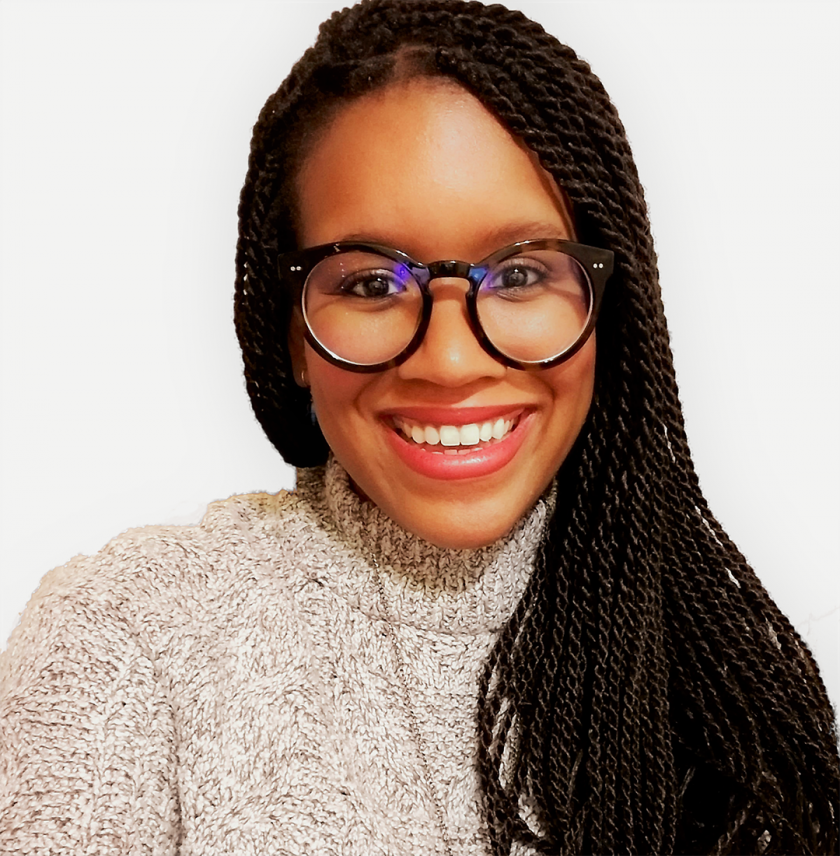
A record fifteen iSchool master's students were named 2020-2021 Spectrum Scholars by the American Library Association (ALA) Office for Diversity, Literacy, and Outreach Services. This "Spectrum Scholar Spotlight" series highlights the School's scholars. MS/LIS student Krystal Madkins holds a BA in sociology from Bryn Mawr College and an MPH in epidemiology from the University of Illinois at Chicago.
Why did you decide to pursue an LIS degree?
I have an interest in sexual health and am currently a research project manager for HIV/STI prevention interventions for LGBTQ youth. I decided to pursue an LIS degree because it will allow me to marry my interests in health research with the fulfillment that I feel from helping others learn and access information. I also appreciate that the interdisciplinary nature of LIS allows for the application of skills across a variety of settings and topic areas. Finally, it is important to me to do work that has a positive impact on the lives of others. I believe that this is possible in librarianship, given its roots in and continued commitment to advancing progressive ideals.
Why did you choose the iSchool at Illinois?
I chose the iSchool at Illinois because I like that the MS/LIS program is flexible and customizable. Besides the two required courses, I am able to concentrate on courses specific to my professional goals while still having the space to explore other topics that might expand my interests. I also like how the program emphasizes the importance of practical experience and that staff and faculty offer students a high level of support and resources. In addition, the fact that the iSchool’s online program is as rigorous as that offered on campus was important to me as a Leep student.
What particular LIS topics interest you the most?
I am interested in academic librarianship, research and data science, social justice in libraries, and outreach to diverse communities. In particular, I am interested in addressing the persistent challenges within academic research of involving community stakeholders at all stages of research planning and implementation as well as disseminating accessible findings to populations with the most at stake.
What do you do outside of class?
I like to read, listen to music, and watch TV and movies in my free time. Pre COVID-19, I enjoyed going to live performances (plays, operas, concerts, ballet) and sporting events with friends and family. I am also an avid follower of politics.
What does being a Spectrum Scholar mean to you?
It is an honor to be a Spectrum Scholar and part of such a supportive and accomplished community of librarians of color. I am most excited about the mentorship and professional development opportunities offered to scholars. Navigating a career shift can be scary, so I am grateful to know that I can turn to this community for support and, in turn, be there for other scholars. The financial support provided by the scholarship and matched by the University also removes my worries about being able to afford school, so that I can focus on getting the most out of the program.
What career plans or goals do you have?
My goal is to become an academic health sciences librarian. Ideally, I would like to assist students and faculty with their research but also lead my own research on sexual health. I would like to promote sexual health and well-being among marginalized communities (e.g. LGBTQ folx and people of color) and groups often overlooked in outreach (e.g., older adults and people living in rural areas). I would like to advocate for more community involvement in shaping research and making sure that those who made the research possible share in the knowledge and benefits gained. I believe that this can help to increase trust and participation in research, especially among people of color.